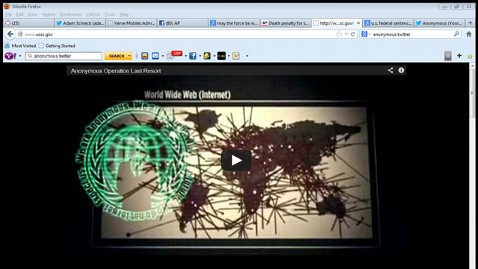CAIRO/ALEXANDRIA, Egypt (Reuters) - On the second anniversary of the uprising that toppled Hosni Mubarak, demonstrators clashed with police during protests across Egypt against the Islamist president they accuse of betraying the revolution.
At least 186 civilians and 45 security personnel were injured, officials said.
Thousands of opponents of President Mohamed Mursi and his Muslim Brotherhood allies massed in Cairo's Tahrir Square - the cradle of the revolt against Mubarak - to rekindle the demands of a revolution they say has been hijacked by Islamists.
Street battles erupted in Cairo, Alexandria, Suez and Port Said. Arsonists attacked at least two state-owned buildings as symbols of government were targeted. An office used by the Muslim Brotherhood's political party was also torched.
The January 25 anniversary laid bare the divide between the Islamists and their secular rivals. This schism is hindering Mursi's efforts to revive an economy in crisis and reverse a plunge in Egypt's currency by enticing back investors and tourists.
Inspired by the popular uprising in Tunisia, Egypt's revolution spurred further revolts across the Arab world. But the sense of common purpose that united Egyptians two years ago has given way to internal strife that last month triggered bloody street battles.
"Our revolution is continuing. We reject the domination of any party over this state. We say no to the Brotherhood state," Hamdeen Sabahy, a popular leftist leader, told Reuters.
The Brotherhood decided against mobilizing for the anniversary, wary of the scope for more conflict after December's violence that was stoked by Mursi's decision to fast-track an Islamist-tinged constitution rejected by his opponents.
The Brotherhood denies accusations that it is seeking to dominate Egypt, labeling them a smear campaign by its rivals.
STONE-THROWING YOUTHS
Before dawn, police battled protesters who threw petrol bombs and firecrackers as they tried to approach a wall blocking access to government buildings near Tahrir Square.
Clouds of tear gas filled the air. At one point, riot police used one of the incendiaries thrown at them to set ablaze at least two tents erected by youths, a Reuters witness said.
Skirmishes between stone-throwing youths and the police continued in streets around the square into the day. Ambulances ferried away a steady stream of casualties.
Protesters echoed the chants of 2011's historic 18-day uprising. "The people want to bring down the regime," they chanted. "Leave! Leave! Leave!" chanted others as they marched towards the square.
"We are not here to celebrate but to force those in power to submit to the will of the people. Egypt now must never be like Egypt during Mubarak's rule," said Mohamed Fahmy, an activist.
There were similar scenes in Suez and Alexandria, where protesters and riot police clashed near local government offices. Black smoke billowed from tires set ablaze by youths.
In Cairo, police fired tear gas to disperse a few dozen protesters trying to remove barbed-wire barriers protecting the presidential palace, witnesses said. A few masked men got as far as the gates before they were beaten back.
Tear gas was also fired at protesters who tried to remove metal barriers outside the state television building.
Outside Cairo, protesters broke into the offices of provincial governors in Ismailia and Kafr el-Sheikh in the Nile Delta. A local government building was torched in the Nile Delta city of al-Mahalla al-Kubra.
BADIE CALLS FOR "PRACTICAL, SERIOUS COMPETITION"
With an eye on parliamentary elections likely to begin in April, the Brotherhood marked the anniversary with a charity drive across the nation. It plans to deliver medical aid to one million people and distribute affordable basic foodstuffs.
Writing in Al-Ahram, Egypt's flagship state-run daily, Brotherhood leader Mohamed Badie said the country was in need of "practical, serious competition" to reform the corrupt state left by the Mubarak era.
"The differences of opinion and vision that Egypt is passing through is a characteristic at the core of transitions from dictatorship to democracy, and clearly expresses the variety of Egyptian culture," he wrote.
Mursi's opponents say he and his group are seeking to dominate the post-Mubarak order. They accuse him of showing some of the autocratic impulses of the deposed leader by, for example, driving through the new constitution last month.
"I am taking part in today's marches to reject the warped constitution, the 'Brotherhoodisation' of the state, the attack on the rule of law, and the disregard of the president and his government for the demands for social justice," Amr Hamzawy, a prominent liberal politician, wrote on his Twitter feed.
The Brotherhood says its rivals are failing to respect the rules of the new democracy that put the Islamists in the driving seat via free elections.
Six months into office, Mursi is also being held responsible for an economic crisis caused by two years of turmoil. The Egyptian pound has sunk to record lows against the dollar.
The parties that called for Friday's protests list demands including a complete overhaul of the constitution.
Critics say the constitution, which was approved in a referendum, offers inadequate protection for human rights, grants the president too many privileges and fails to curb the power of a military establishment supreme in the Mubarak era.
Mursi's supporters say enacting the constitution quickly was crucial to restoring stability needed for economic recovery.
(Additional reporting by Ahmed el-Shemi, Ashraf Fahim, Marwa Awad and Shaimaa Fayed in Cairo and Yousri Mohamed in Ismailia; Writing by Tom Perry; Editing by Robert Woodward)










